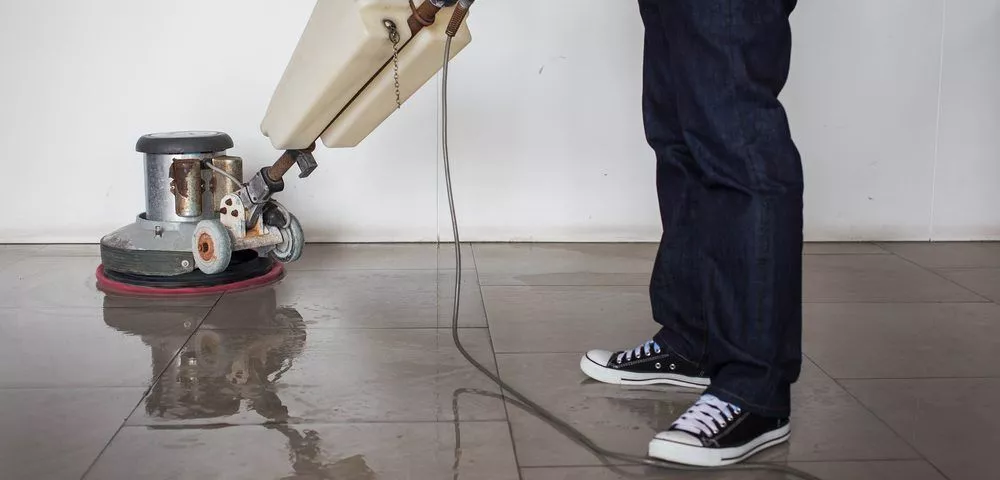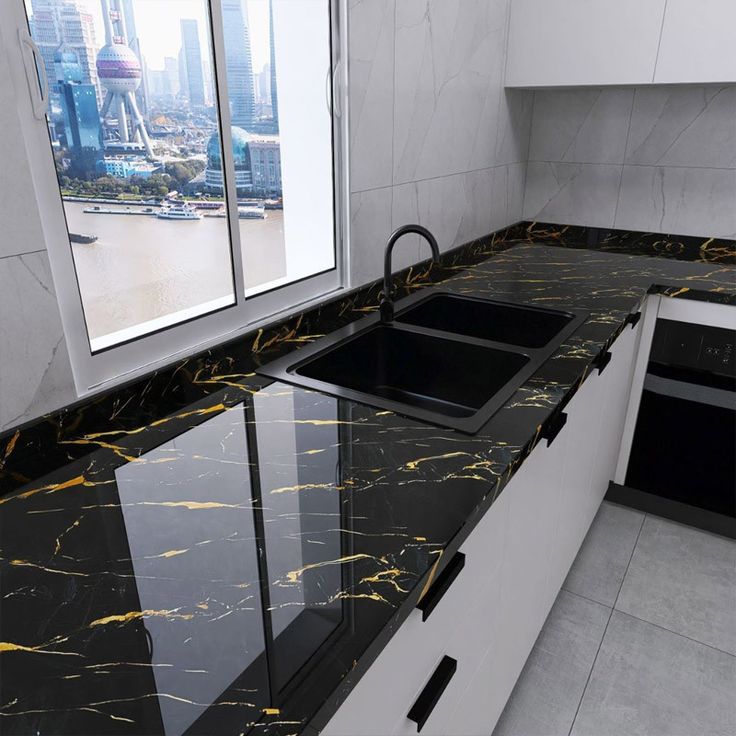Welcome to our ultimate guide on marble cleaning in Melbourne! Whether you’re a homeowner, business owner, or just someone passionate about maintaining the pristine beauty of marble surfaces, you’ve come to the right place.
In this comprehensive guide, we’ll dive deep into expert-tailored tips and tricks for marble cleaning in Melbourne. So, let’s get started on the journey to spotless, gleaming marble!
Essential Takeaways:
- Regular Maintenance is Key: Maintaining marble surfaces in Melbourne involves daily dusting, prompt spill cleanup, and regular use of pH-neutral cleaners. This routine helps preserve the natural beauty and longevity of marble by preventing stains and scratches.
- Avoid Harmful Cleaning Products: It’s crucial to use the right products for marble cleaning. Acidic and abrasive cleaners can cause permanent damage. Instead, opt for specialized marble cleaning products that are gentle and safe for regular use.
- Professional Help When Needed: While regular maintenance can address most cleaning needs, certain issues like deep scratches, severe etching, or extensive stains may require professional marble cleaning services. Choosing a reliable service provider in Melbourne ensures the best care for your marble surfaces.
What is Marble?
Marble is a metamorphic rock that forms when limestone is subjected to high pressure and heat. Its unique veining and colouration make it a popular choice for countertops, flooring, and other architectural elements. The natural beauty and elegance of marble have been admired for centuries, with famous structures like the Taj Mahal and Michelangelo’s David showcasing its timeless appeal.
In Melbourne, you can find a variety of marble types used in homes and buildings, including Carrara, Calacatta, and Statuario. Each type has its distinct characteristics, with variations in colour, veining, and overall appearance. Understanding the type of marble you have is crucial for its proper care and maintenance.
Why Marble Requires Special Care?
Marble is a porous stone, which means it can easily absorb liquids and stains. It’s also relatively soft compared to other stones like granite, making it susceptible to scratches and etching. The acidity in common household substances such as vinegar, lemon juice, and even some cleaning products can cause permanent damage to marble surfaces.
Melbourne’s climate, with its fluctuations in humidity and temperature, can also affect marble. The city’s environment can contribute to the build-up of dirt and grime, making regular maintenance essential to preserve the stone’s beauty and longevity.
Essential Tools and Products for Marble Cleaning
Recommended Cleaning Tools
Proper tools are vital for maintaining marble surfaces. Here are some essentials you’ll need for effective marble cleaning:
- Soft Microfiber Cloths: Ideal for dusting and wiping surfaces without scratching the marble.
- pH-Neutral Cleaners: Specialized marble cleaners that are gentle and safe for regular use.
- Soft-Bristle Brushes: Useful for cleaning grout lines and removing dirt from textured surfaces.
- Marble Polishing Pads: Designed for polishing and restoring the shine of marble surfaces.
In Melbourne, you can find these products at local home improvement stores or online retailers. Look for brands like StoneTech, MarbleLife, and Miracle Sealants, which offer a range of products specifically designed for marble care.
Avoiding Harmful Products
It’s crucial to avoid certain cleaning products that can damage marble. Acidic cleaners, such as those containing vinegar or citrus, can etch the surface, while abrasive cleaners can scratch and dull the finish. Instead, opt for pH-neutral cleaners that are formulated to be safe for natural stone.
If you need to disinfect marble surfaces, use a mixture of warm water and a small amount of mild dish soap. Always rinse thoroughly with clean water and dry with a soft cloth to prevent water spots and streaks.
Step-by-Step Marble Cleaning Guide
Daily Cleaning Routine
Maintaining a daily cleaning routine is key to preserving the beauty of marble surfaces. Here’s a simple, effective routine you can follow:
- Dust Daily: Use a soft microfiber cloth to dust the marble surface daily. This helps remove loose dirt and debris that can cause scratches.
- Wipe Spills Immediately: Marble is porous and can easily stain. Wipe up spills immediately using a soft cloth and pH-neutral cleaner.
- Clean Regularly: Clean the marble surface regularly with a pH-neutral cleaner. Spray the cleaner onto the surface and wipe with a soft cloth in a circular motion.
Deep Cleaning Techniques
For a more thorough clean, follow these steps to deep clean your marble surfaces:
- Prepare the Area: Remove any items from the marble surface and dust thoroughly.
- Apply Cleaner: Apply a pH-neutral marble cleaner or a mixture of warm water and mild dish soap to the surface.
- Scrub Gently: Use a soft-bristle brush to scrub the surface gently, focusing on areas with stains or dirt build-up.
- Rinse and Dry: Rinse the surface with clean water to remove any residue, and dry with a soft microfiber cloth to prevent water spots.
Polishing and Sealing Marble
Polishing and sealing are essential steps in maintaining marble surfaces:
Polishing
Use a marble polishing pad to restore the shine of your marble surfaces. Apply a small amount of marble polish to the pad and buff the surface in circular motions until it shines.
Sealing
Sealing marble helps protect it from stains and damage. Apply a marble sealer according to the manufacturer’s instructions, usually by spraying it on and wiping it off with a soft cloth. Allow the sealer to cure for the recommended time before using the surface.
Addressing Common Marble Problems
Marble can be prone to various types of stains. Here’s how to tackle some common ones:
Oil Stains
Use a poultice made from baking soda and water. Apply it to the stain, cover with plastic wrap, and let it sit for 24 hours before wiping off.
Organic Stains (e.g., Coffee, Wine):
Apply a poultice made from hydrogen peroxide and a few drops of ammonia. Let it sit for 24 hours, then wipe clean.
Rust Stains
Use a poultice made from a non-abrasive cleaner and a few drops of ammonia. Apply, cover, and let it sit for 24 hours before wiping off.
Dealing with Scratches and Etching
Scratches and etching can mar the surface of marble. Here’s how to address them:
- Light Scratches: Buff out light scratches with a marble polishing powder and a soft cloth.
- Deep Scratches: For deeper scratches, you may need professional help to refinish the surface.
- Etching: Etching, caused by acidic substances, can often be treated with a marble polishing powder. Apply the powder with a damp cloth and buff in circular motions until the etch marks diminish.
Professional Marble Cleaning Services in Melbourne
While regular cleaning can maintain the beauty of marble, there are times when professional help is necessary:
- Deep Stains and Etching: If stains or etch marks are too deep to remove with DIY methods.
- Extensive Scratches: When scratches are too deep or widespread to handle on your own.
- Routine Maintenance: Regular professional maintenance can extend the life and beauty of your marble surfaces.
Choosing the Right Service Provider
Selecting a reliable marble cleaning service in Melbourne is essential. Here are some tips:
- Check Credentials: Ensure the company has experience and positive reviews.
- Ask Questions: Inquire about their cleaning methods, products used, and guarantees.
- Get Quotes: Compare quotes from multiple providers to ensure fair pricing.
Preventive Measures for Long-Term Marble Care
Preventive care is crucial for the long-term maintenance of marble surfaces:
Use Coasters and Mats
Prevent stains and scratches by using coasters under glasses and mats under heavy items.
Seal Regularly
Reapply marble sealer every 6-12 months to protect against stains.
Avoid Harsh Chemicals
Stick to pH-neutral cleaners and avoid abrasive or acidic products.
Environmental Factors to Consider in Melbourne
Melbourne’s climate can affect marble surfaces, so consider these tips:
- Humidity Control: Use dehumidifiers in high-humidity areas to prevent moisture build-up.
- Temperature Fluctuations: Avoid placing hot items directly on marble surfaces to prevent thermal shock.
- Dust and Pollutants: Regularly dust and clean marble surfaces to remove pollutants and grime.
Conclusion
Keeping your marble surfaces pristine doesn’t have to be a daunting task. By following these expert tips and incorporating regular maintenance into your routine, you can ensure that your marble stays beautiful for years to come.
Whether you’re tackling daily cleaning or planning a deep clean, remember that the right tools and techniques make all the difference.
Ready to take your marble care to the next level? Visit our website for more in-depth tips and tricks, or contact our team of experts for professional marble cleaning services in Melbourne. Let’s keep your marble shining bright together!
FAQs
What is the best way to clean marble surfaces daily?
The best way to clean marble surfaces daily is to use a soft microfiber cloth to dust the surface. For spills, wipe them immediately with a pH-neutral cleaner and a soft cloth. Regularly clean the surface with a gentle marble cleaner to maintain its shine and prevent stains.
Can I use vinegar or lemon juice to clean marble?
No, you should avoid using vinegar, lemon juice, or any other acidic cleaners on marble surfaces. These substances can etch and damage the marble, leaving it dull and stained. Always use pH-neutral cleaners specifically designed for marble.
How often should I seal my marble surfaces?
Marble surfaces should be sealed every 6-12 months to protect them from stains and damage. The frequency of sealing can depend on the usage and exposure of the marble. Regular sealing helps maintain the marble’s appearance and durability over time.






